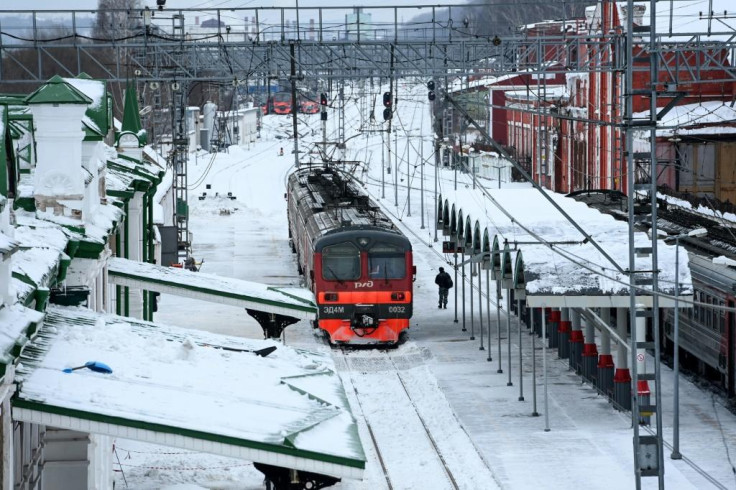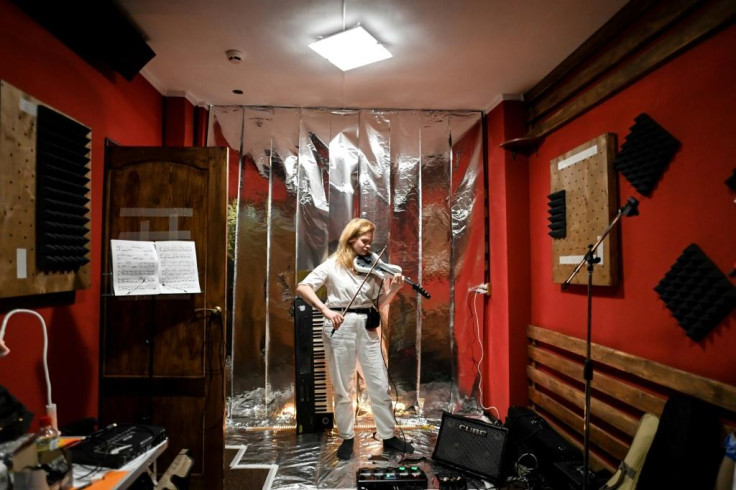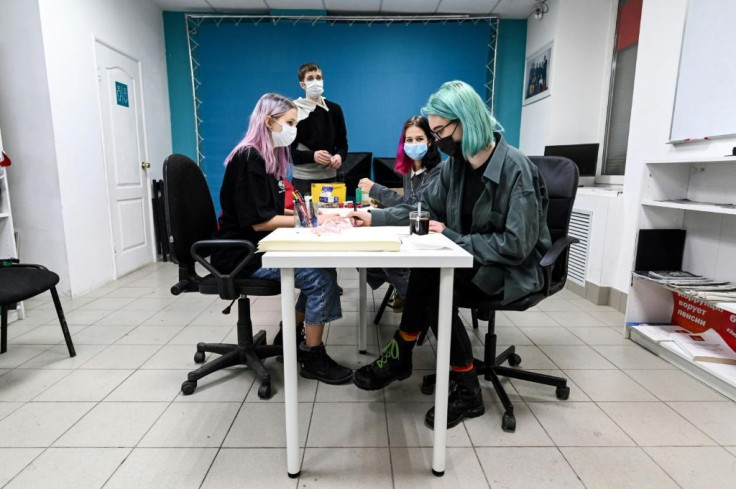Far from Moscow, disenchantment with Putin starts to show
The jailing of Navalny after the attempt on his life proved the last straw for many.
When Ivan Rudnev saw thousands of people join an opposition protest in his gritty hometown of Perm despite temperatures of minus 20 degrees Celsius last weekend, he realised something had changed.
"We were blown away when we saw this crowd," the 27-year-old activist told AFP.
In this industrial city on the edge of the Ural Mountains, 1,200 kilometres (750 miles) east of Moscow, between 6,000-8,000 people marched last Saturday to protest against President Vladimir Putin's 20-year rule and demand the release of his jailed foe Alexei Navalny.
The turnout might not seem like much for a city of more than one million people but for Perm it was a "first," Rudnev and others said.
Tens of thousands heeded Navalny's call to stage nationwide protests following his arrest upon return from Germany, where he had been recovering from a near-fatal poisoning with a nerve toxin.

While previous large-scale opposition demonstrations were largely confined to Moscow and Saint Petersburg, Saturday's protests took on an unprecedented geographic scale, spanning more than 100 cities across the country.
Protests erupted in a number of cities that were not previously known for anti-Kremlin demonstrations -- including Sevastopol in Russia-annexed Crimea.
Alexei Levinson, a sociologist at the independent Levada Centre, said that cities that political observers would have never thought of before joined the opposition demonstrations.
"For the first time we have seen people come out en masse not for a local cause but for a national agenda," Levinson told AFP.

In Perm, social media buzzed with excitement ahead of the rallies.
"People wrote to us excitedly saying that they will come," said Rudnev, an activist with Navalny's office in the city.
Growing poverty, corrupt courts and widespread claims of rigged elections have fuelled frustration with the Russian authorities for years.
The jailing of Navalny after the attempt on his life proved the last straw for many.
Others were incensed by the findings of Navalny's investigative report claiming that an opulent palace was built for Putin on the Black Sea coast. The two-hour report on the palace -- which features a casino hall, an underground ice hockey rink and 800-dollar toilet brushes -- has racked up more than 100 million views.

Many in Perm are angry, pointing to a city in decline.
One of Russia's largest cities has managed to preserve a strong industrial base but outside the centre, the city has largely remained unchanged since the fall of the Soviet Union in 1991.
"In the 1970s we built engines for Protons, the most powerful rockets in the world," said local activist Yury Bobrov.
The city trains thousands of engineers every year, Bobrov said, but they understand that now our industry "is on the world's fringes".
Musician and translator Asya Alypova was among those who protested in Perm for the first time last weekend even though she never thought of herself as a political activist.
"There have been so many concerns in 2020," the 31-year-old said, referring to the prosecution of LGBT activist Yulia Tsvetkova and the constitutional changes that allow Putin to remain in power until 2036.
Alypova also lamented what she called the cultural stagnation of a city the New York Times described in 2011 as "Bilbao on Siberia's Edge."
In the early 2010s, renowned collector Marat Gelman had been appointed director of the city's contemporary art museum and star conductor Teodor Currentzis was hired by the Perm State Opera and Ballet Theatre.
Both have since left Perm.
Alypova said protesters took to the streets to demonstrate against "everything we are unhappy with" and not just because of Navalny.
Political analyst Alexander Kynev said that Russians demonstrated even in cities and towns where Navalny's regional offices are not present.
"The main organiser of these protests are authorities themselves, their tactics, and their mad propaganda," he added.
Even though police arrested more than 4,000 people across the country last weekend, Navalny's team hopes to stage new rallies this Sunday.
Both political observers and activists struggle to predict what happens next.
Rudnev hopes changes will come.
"It's absolutely impossible not to take into account the opinions of so many people."
Copyright AFP. All rights reserved.
This article is copyrighted by International Business Times, the business news leader




















